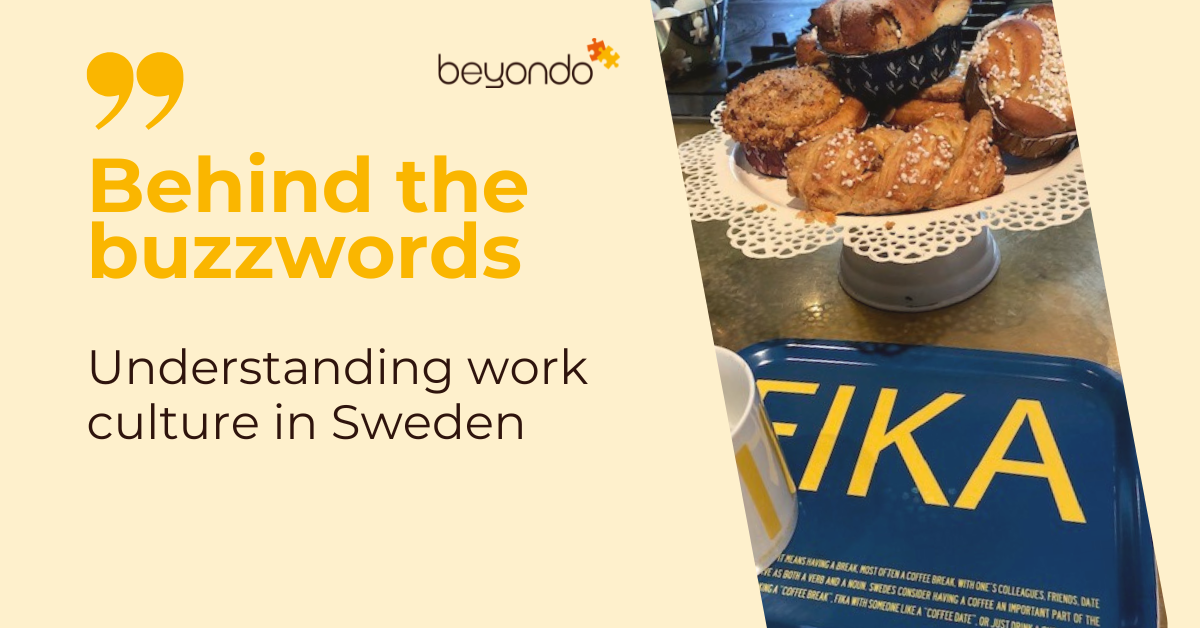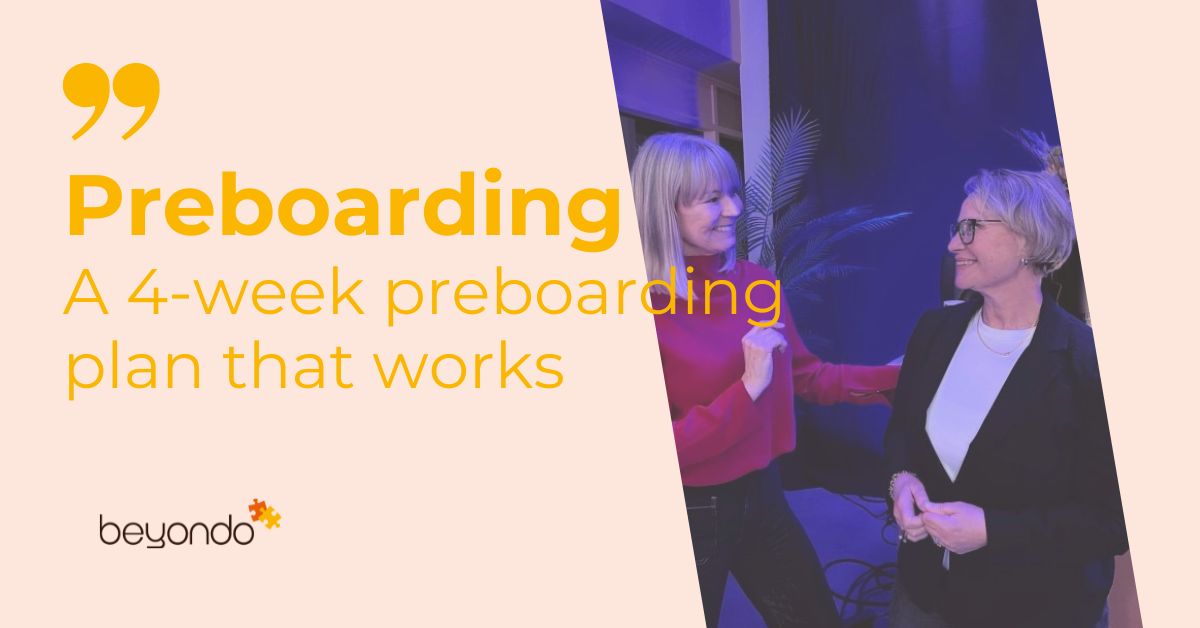Our founder, Karin, was recently interviewed for a webinar about working in Sweden, where she had the chance to share both her professional experience and her personal journey as a homecoming Swede. The questions touched on collaboration, feedback culture, and — yes — fika. But instead of repeating the usual phrases, she wanted to be honest about what she sees every day through her work at Beyondo: that integrating into Swedish work life is rarely fast or simple.
We often say Sweden is inclusive, and that’s true — but becoming part of the workplace takes time, curiosity, and sometimes a bit of patience. It's in the informal conversations, the quiet observations, and the moments around the coffee machine (not just the official meetings) where trust is built and things start to happen.
For us, recruitment isn’t about ticking boxes — it’s about building real relationships. That’s also why we believe it’s important to tell the whole story. International talent deserves more than surface-level advice. They deserve honest insights to help them navigate with their eyes wide open.
In this post, she shares her answers to the interview questions and some reflections I hope can support others trying to understand Swedish work culture a little better.
Märketalent is a project created by Aida Alonso Larsson and Erika Esteban Carmona to help growing businesses attract and retain talent through stronger, more human employer branding.
Combining Aida’s HR and cross-cultural expertise with Erika’s background in project management and digital strategy, their mission is to bridge the gap between people and brands. They aim to make recruitment more inclusive, visible, and effective, while also supporting international professionals navigating the Swedish job market.
On May 15th, they held a webinar titled “Understanding Cultural Differences in the Swedish Workplace,” aimed at helping international professionals and job seekers better understand and navigate cultural differences in the Swedish work environment. The goal was to support attendees in building strong relationships, collaborating effectively, and succeeding in their careers, without losing their own identity. As part of this webinar, they included interviews with industry experts and local Swedes, including one with Karin Björkman. The following is the complete interview.
Erika Esteban Carmona and Aida Alonso LarssonFrom your experience, what are 1–2 key values that shape how people collaborate at work in Sweden?
Inclusiveness and consensus are important. People want to involve everyone and take the time to make decisions together. From my work at Beyondo, I’ve seen that this can feel slow or unclear to internationals, especially when you're used to a faster pace. There’s a real will to include, but building a sense of belonging takes time.
What’s one thing you think surprises many newcomers about working in Swedish companies?
Many are surprised by how flat the organisation is. It’s normal to call your manager by their first name, and you’re expected to share your opinions, no matter your role. But what often comes as a surprise is how hard it can be to become part of the group. Based on my experience helping international talent — and being a homecoming Swede myself — I know that even if we say we’re inclusive, it can take time to feel truly accepted.
In your view, how important are informal interactions like fika in building trust at work here?
Fika may be an a buzzword, but what matters is joining the conversations around the coffee machine. That’s where trust is built and often where things start moving. These informal chats can help you understand how things work. From what I see in my work, they are just as important as formal meetings — if not more.
How do teams in Sweden typically handle disagreements or give feedback?
Swedes like harmony, so open conflict is avoided. Feedback is usually soft and polite, even when it's important. In my own experience, and something I hear often from international professionals, is that while we say we’re direct, we often don’t talk about the real problem. It’s more common to hint at things than to be very clear. This can be confusing at first.
If you could give one piece of advice to an international colleague trying to adapt here, what would it be?
Be patient and stay curious. Adapting to Swedish work culture takes time, even for someone like me who has returned after time abroad. Listen, ask questions, and join the informal moments. Things may not move fast, but if you keep showing up, you’ll slowly find your place.
Thank you, Aida, and Märketalent for the interview!




